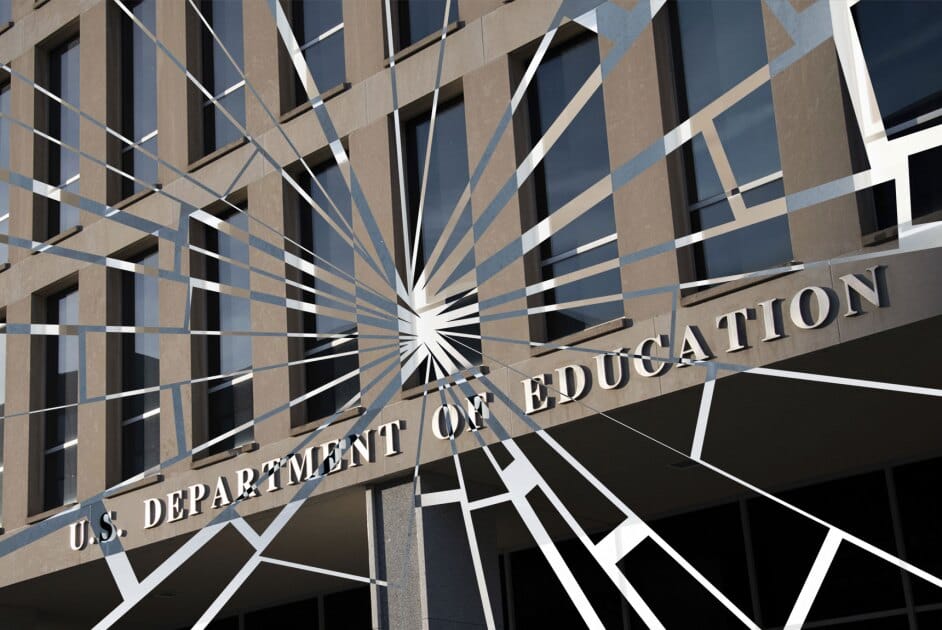Over 80 percent of America’s children attend one of the nearly 100,000 public schools across the country. Nearly 16 million students are pursuing their American dream by seeking a college degree. Dismantling the U.S. Department of Education would harm them all and put America at risk.
As former secretaries of education, we have traveled the nation’s highways, city streets, and rural roads across all 50 states to witness firsthand what is and is not working in our schools. We saw amazing students achieve miracles in classrooms and vulnerable students conquer learning challenges under the guidance of brilliant educators. We visited Title I schools that support low-income communities, talked with parents who rely on IDEA funding to provide the services their children with disabilities need, and met with students using Pell Grants to attend college.
We listened to teacher concerns about crowded classrooms, outdated materials, and outmoded facilities. We listened to parent concerns about safety and the cost of college. Above all, we heard their faith and trust in the power of public education to secure a bright future for their children. In all these conversations, we were only asked how our government could do more, not less.
From the GI Bill for returning World War II veterans to the Eisenhower-era push for more science education, presidents from both sides of the aisle have recognized that public education is a matter of national interest, and right now, we are falling behind. According to a recent international assessment, the United States was outperformed by 17 other nations and regions in math, science, and reading. In a tense, competitive world, the military is our best defense, but education is our best offense.
Yet today, in our nation’s capital, there’s a war being waged on public education by Elon Musk and President Donald Trump. Instead of figuring out how to improve reading or math literacy, increase school safety, or make college more affordable, people who spent little time in public school and never used a Pell Grant to go to college are trying to tear down the system responsible for supporting education opportunity in our local communities. This is happening without legislation, debate, or input from the public. And education isn’t the only target.
Consider what has happened to USAID, an agency tasked with alleviating poverty and promoting democracy around the world. The agency was all but shuttered in a matter of weeks—the sign on the building was removed, employees dismissed, and its website shut down. Only with the intervention of a judge were the funds for the agency’s programs temporarily unfrozen.
Today, there are parents across America who could lose access to preschools and child care because Musk and the Trump administration shut down the system that provides funding for Head Start programs.
We call on every parent who is concerned about preserving access to education for your children to make your voice heard.
Today, individuals who answer only to Musk are rifling through data that include the personal information of folks who have received federal student aid—which could include FAFSA forms listing family income, debt levels, and credit histories—and now a court has allowed all of that to temporarily continue.
As secretaries of education, we’ve not only visited communities to celebrate when things are going well; we’ve also been there to offer support when things go horribly wrong. For one of us (Duncan), the hardest day on the job was traveling to Sandy Hook Elementary School in Connecticut to support grieving families who lost their children in the deadliest elementary school shooting in U.S. history.
When the nation faced the worst economic crisis since the Depression, the Education Department stepped in to keep schools whole and keep kids learning. When the worst health crisis in a century struck America and the world, the department offered guidance and financial support to public schools, states, colleges, and universities. In painful and challenging moments, Americans are always there for each other, and the Education Department has been part of that work.
In addition to serving at the national level, we have both held local and state positions. We share the view that education is primarily the responsibility of states and districts, which account for 90 percent of education funding. We know that the best ideas for improving learning will not come from Washington but from teachers and leaders on the front lines.
But we also know that 50 states and 13,000 school districts operating independently have often fallen short. The nation has a long history of states setting standards that don’t require college readiness, school districts denying education to vulnerable populations, and parents left to fend for themselves when their kids were falling behind. Protecting the civil rights of students was central to the Education Department’s founding in 1979.
So we call on every parent who is concerned about preserving access to education for your children to make your voice heard. We call on teachers and education leaders to speak up on behalf of the partnerships we have built over the years to create schools that serve all children and to build a higher education system that is the envy of the world.
We call on business leaders who rely on public education to produce a competitive workforce to join the debate. And we call on elected leaders at every level of government—and especially Republicans whose support for the Trump administration’s reckless actions is enabling this assault on schools and families—to make your voices heard.
We cannot allow people with little-to-no experience in public education to dismantle what we have built together. The stakes could not be higher.
2025-02-19 17:04:58
Source link

